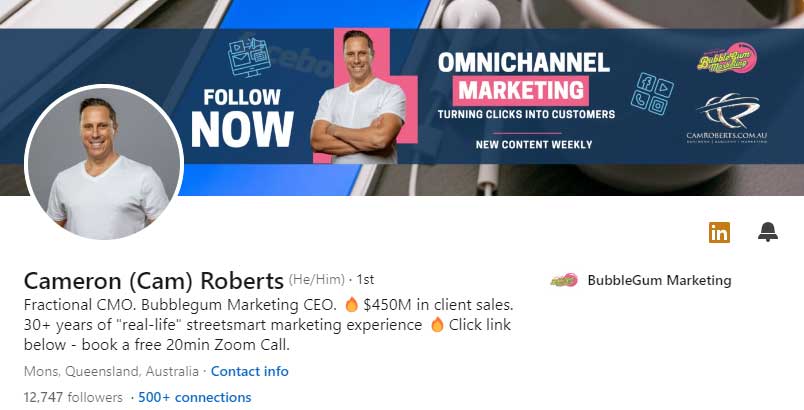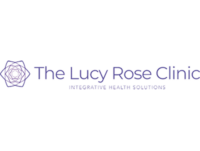PPC For Lawyers To Grow A Legal Practice
By Cameron Roberts – Founder & CEO of Bubblegum Marketing,
Posted On July 19, 2024
When it comes to PPC for lawyers, and the competitive world of legal services, standing out is crucial.
Law firms need to be seen and heard.
One effective way to achieve this is through Pay-Per-Click (PPC) advertising.
PPC for lawyers is a powerful tool.
It can help law firms attract more clients, increase their online presence, and boost revenue.
But how does it work?
And how can you use it effectively to grow your legal practice using ppc for lawyers?
This article will provide answers to these questions.
We’ll delve into the world of PPC advertising for lawyers.
We’ll explore how to create, manage, and optimize PPC campaigns tailored for the legal industry.
We’ll provide actionable insights and strategies.
These will help you leverage PPC to gain a competitive edge in the legal market.
Whether you’re a lawyer, a law firm marketing manager, or a legal practitioner, this guide is for you.
Let’s dive in and explore how PPC can help grow your legal practice.
Understanding PPC for Lawyers
Before we delve into the specifics, let’s first understand what PPC is.
PPC stands for Pay-Per-Click.
It’s a type of online advertising where you pay a fee each time someone clicks on your ad is called ppc for lawyers.
In essence, you’re buying visits to your site, rather than attempting to earn them organically.
This can be a cost-effective way to drive traffic to your website, especially when done right.
The Basics of PPC in the Legal Industry
In the legal industry, PPC works much the same way.
Law firms bid on keywords related to their practice areas.
When a user searches for these keywords, the law firm’s ad may appear in the search results.
If the user clicks on the ad, they’re directed to the law firm’s website, and the firm pays a fee.
This fee is worth it if the click results in a new client.
Why PPC is Essential for Lawyers
PPC for lawyers is essential for lawyers for several reasons.
First, it can significantly increase online visibility.
This is crucial in a competitive industry like law, where being seen can make all the difference.
Second, PPC can attract more clients.
By targeting specific keywords, you can reach potential clients who are actively looking for your services.
Finally, PPC can provide a good return on investment, especially when managed effectively.
In the following sections, we’ll explore how to do just that.

Crafting Your Law Firm’s PPC for Lawyers Strategy
Crafting a successful PPC for lawyers strategy requires careful planning and execution.
It’s not just about choosing the right keywords and creating compelling ads.
You also need to consider your target audience, your budget, and your overall business goals.
In the following sections, we’ll explore these aspects in more detail.
Setting Realistic PPC for Lawyers Goals
The first step in crafting your PPC for lawyers strategy is setting realistic goals.
What do you hope to achieve with your PPC campaign?
More website traffic?
Increased client inquiries?
Higher conversion rates?
Your goals will guide your strategy and help you measure your success.
Here are some common PPC goals for law firms:
- Increase brand awareness
- Drive traffic to the website
- Generate leads
- Increase client inquiries
- Improve conversion rates
Budgeting for Your PPC for Lawyers Campaigns
Budgeting is a crucial part of your PPC strategy.
You need to decide how much you’re willing to spend on your PPC campaigns.
This will depend on several factors, including your overall marketing budget, your business goals, and the competitiveness of your keywords.
Remember, the goal is to maximize your return on investment, not to spend as much as possible.
With careful planning and management, even a modest budget can yield significant results.
Understanding and Complying with Legal Advertising Regulations
Finally, it’s important to understand and comply with legal advertising regulations.
These regulations vary by jurisdiction, but they generally require that your ads be truthful and not misleading.
You also need to be aware of any restrictions on the use of certain terms or phrases.
Failure to comply with these regulations can result in penalties, including fines and suspension of your ad account.
Therefore, it’s crucial to familiarize yourself with these regulations before launching your PPC campaign.
Keyword Research for PPC for Lawyers
Keyword research is the foundation of any successful PPC campaign.
It involves identifying the words and phrases that potential clients use when searching for legal services online.
These keywords are then used to create targeted ads that appear when these terms are searched for.
The goal is to attract qualified leads – people who are actively looking for the legal services you offer.

Identifying Effective Keywords for PPC for Lawyers
Identifying effective keywords for your law firm’s PPC campaign requires a deep understanding of your target audience.
What terms are they likely to use when searching for legal services?
What questions are they asking?
What problems are they trying to solve?
By understanding your audience’s search behavior, you can identify the keywords that will attract the most qualified leads.
Using Long-Tail Keywords to Attract Qualified Leads via PPC for Lawyers
Long-tail keywords are longer, more specific phrases that people use when they’re closer to making a decision.
For example, instead of searching for “lawyer,” a potential client might search for “divorce lawyer in Miami with free consultation.”
By targeting these long-tail keywords, you can attract more qualified leads who are ready to take action.
The Role of Negative Keywords in Refining Ad Targeting for PPC for Lawyers
Negative keywords are terms that you don’t want your ads to appear for.
For example, if you’re a personal injury lawyer, you might use “divorce” as a negative keyword to prevent your ads from showing up for divorce-related searches.
By using negative keywords, you can refine your ad targeting and avoid wasting money on irrelevant clicks.
Creating Compelling Ad Copy for PPC for Lawyers
Once you’ve identified your keywords, the next step is to create compelling ad copy.
This is the text that potential clients will see when your ad appears in their search results.
Your ad copy should clearly communicate what you offer and why potential clients should choose your law firm over others.
It should also include a strong call-to-action (CTA) that encourages potential clients to take the next step.
Writing Effective Headlines and Descriptions
The headline is the first thing people see when your ad appears in their search results.
It should be compelling and relevant to the keywords you’re targeting.
The description, on the other hand, provides more information about your services.
It should highlight the unique value proposition of your law firm and give potential clients a reason to click on your ad.
Utilizing Call-to-Actions (CTAs) to Drive Engagement
A call-to-action (CTA) is a prompt that encourages potential clients to take a specific action. Your ppc agency can assist with this.
For example, your CTA might be “Call Now for a Free Consultation” or “Schedule Your Appointment Online Today.”
A strong CTA can significantly increase the click-through rate (CTR) of your ads and drive more potential clients to your website.
Ad Extensions and Their Benefits
Ad extensions are additional pieces of information that you can include in your ads.
They can include things like your law firm’s address, phone number, or links to specific pages on your website.
By using ad extensions, you can provide potential clients with more information about your law firm and increase the likelihood that they’ll click on your ad.
Optimizing Landing Pages for Law Firm PPC
Once a potential client clicks on your ad, they’ll be directed to a landing page on your website.
This page is your opportunity to convince them to take the next step, whether that’s scheduling a consultation, filling out a contact form, or making a phone call.
To maximize the effectiveness of your landing pages, you need to ensure they’re well-designed and contain compelling content.
They should also be optimized for conversions, which means making it as easy as possible for potential clients to take the desired action.
Best Practices for Landing Page Design and Content
The design of your landing page plays a crucial role in its effectiveness.
It should be clean, professional, and easy to navigate.
The content on your landing page should be relevant to the keywords you’re targeting and the ad copy that led the potential client to the page.
It should clearly communicate the value of your services and provide a compelling reason for potential clients to choose your law firm.
A/B Testing for Conversion Rate Optimization
A/B testing is a method of comparing two versions of a webpage to see which one performs better.
You can use A/B testing to experiment with different elements of your landing page, such as the headline, body copy, images, and call-to-action.
By continually testing and optimizing your landing pages, you can increase their conversion rate and get more value from your PPC campaigns.
Targeting and Retargeting in Law Firm PPC
Targeting is a crucial aspect of any PPC campaign.
It ensures your ads are seen by the right people at the right time.
For law firms, this often means focusing on geographic and demographic targeting.
Retargeting, on the other hand, allows you to reach people who have already interacted with your website or ads.
Geographic and Demographic Targeting Strategies
Geographic targeting allows you to focus your ads on potential clients in specific locations.
This is particularly useful for law firms, as legal services are often location-specific.
Demographic targeting, meanwhile, lets you target your ads based on factors like age, gender, and income.
By combining geographic and demographic targeting, you can ensure your ads are seen by the people most likely to need your services.
The Power of Retargeting Campaigns
Retargeting is a powerful tool for increasing conversions.
It allows you to show ads to people who have already visited your website or clicked on one of your ads.
These people are already familiar with your law firm, making them more likely to convert.
By using retargeting in conjunction with other targeting strategies, you can maximize the effectiveness of your PPC campaigns.
Measuring and Analyzing PPC Campaign Performance
Once your PPC campaign is up and running, it’s crucial to monitor its performance.
This allows you to identify what’s working and what isn’t, and make necessary adjustments.
There are several key performance indicators (KPIs) that can help you measure the success of your PPC campaign.
These include click-through rate (CTR), conversion rate, and cost per conversion.
Key Performance Indicators (KPIs) for Legal PPC
Click-through rate (CTR) is the percentage of people who click on your ad after seeing it.
A high CTR indicates that your ad is relevant and appealing to your target audience.
Conversion rate, on the other hand, is the percentage of people who complete a desired action after clicking on your ad.
This could be filling out a contact form, calling your law firm, or scheduling a consultation.
Cost per conversion tells you how much you’re spending for each successful conversion.
This is a crucial metric for understanding the return on investment (ROI) of your PPC campaign.
Using Analytics to Optimize Campaigns
Analytics tools can provide valuable insights into your PPC campaign performance.
They can show you which keywords are driving the most traffic, which ads are performing best, and where your conversions are coming from.
By analyzing this data, you can identify opportunities for optimization.
This could involve adjusting your bids, refining your targeting, or tweaking your ad copy.
Remember, the goal is not just to drive traffic, but to attract qualified leads that are likely to convert into clients.
Common PPC for Lawyers Pitfalls and How to Avoid Them
While PPC can be a powerful tool for law firms, it’s not without its challenges.
Understanding these common pitfalls can help you avoid them and maximize your PPC success.
One common mistake is failing to optimize your landing pages.
Even if your ads are compelling, a poor landing page experience can deter potential clients and waste your ad spend.
Overcoming Common Challenges in Legal PPC
Another common challenge is neglecting to use negative keywords.
Negative keywords prevent your ads from showing for irrelevant searches, helping you focus your ad spend on qualified leads.
It’s also crucial to regularly review and update your keyword list to ensure it aligns with your target audience’s search behavior.
Failing to track conversions is another common pitfall.
Without conversion tracking, you won’t know which ads and keywords are driving results, making it difficult to optimize your campaign.
Managing and Reducing Ad Fatigue
Ad fatigue is another common challenge in PPC advertising.
This occurs when your target audience sees your ads too frequently and becomes less responsive to them.
To manage and reduce ad fatigue, consider rotating your ads, experimenting with different ad formats, and refining your targeting.
Remember, a successful PPC campaign requires ongoing management and optimization.
By staying vigilant and proactive, you can overcome these common challenges and maximize your PPC success.
Advanced Legal PPC Strategies
As you become more comfortable with PPC, you can start exploring advanced strategies.
These can help you gain a competitive edge and further enhance your campaign performance.
One such strategy is competitor analysis.
By understanding what your competitors are doing, you can identify opportunities to outperform them.
Leveraging Competitor Analysis for Enhanced Performance
Competitor analysis involves researching your competitors’ PPC strategies.
This includes their keywords, ad copy, landing pages, and more.
By understanding their approach, you can identify gaps in their strategy and capitalize on them.
For example, if a competitor is neglecting a high-value keyword, you can target it to capture their missed opportunities.
Exploring Alternative PPC Platforms Beyond Google Ads
While Google Ads is the most popular PPC platform, it’s not the only one.
Platforms like Bing Ads, LinkedIn Ads, and Facebook Ads can also be effective for law firms.
Each platform has its own strengths and audience, so consider your target market and goals when choosing a platform.
For example, LinkedIn Ads can be effective for B2B law firms, while Facebook Ads can be great for B2C firms to boost sales.
By diversifying your PPC efforts across multiple platforms, you can reach a wider audience and maximize your online visibility.
Integrating PPC with Other Digital Marketing Efforts
PPC is a powerful tool on its own, but it can be even more effective when integrated with other digital marketing efforts.
This holistic approach can help you create a comprehensive online presence and maximize your ads management via marketing ROI.
The Synergy Between PPC and SEO
PPC and SEO are two sides of the same coin.
While PPC can drive immediate results, SEO can help you build long-term organic visibility.
By integrating these two strategies, you can dominate both paid and organic search results.
This can significantly increase your online visibility and attract more potential clients.
For example, you can use PPC data to inform your SEO strategy.
The keywords that perform well in your PPC campaigns can also be targeted in your SEO efforts.
Similarly, the insights you gain from SEO can help you refine your PPC campaigns.
This synergy can lead to more effective and efficient marketing efforts.
Combining PPC with Content Marketing and Social Media
PPC can also be integrated with content marketing, social media, and marketing automation with tools like Keap for Law firms.
For example, you can promote your high-quality content through PPC ads to attract more visitors to your website.
Similarly, you can use social media ads to target potential clients based on their interests and behaviors.
By combining these strategies, you can create a multi-channel marketing approach that reaches your target audience at multiple touchpoints.
This can help you build brand awareness, engage your audience, and ultimately drive more conversions.
Conclusion: Maximizing ROI with Effective Legal PPC Strategies
In conclusion, PPC advertising can be a game-changer for law firms.
It can help you attract more clients, increase your online visibility, and improve your ROI and growth of your legal practice.
However, to maximize your ROI, it’s crucial to implement effective legal PPC strategies.
This includes understanding the basics of PPC, conducting thorough keyword research, crafting compelling ad copy, optimizing your landing pages, and measuring your campaign performance.
Recap of Key Takeaways
Throughout this guide, we’ve covered a wide range of topics related to PPC for lawyers.
We’ve discussed the importance of setting realistic goals, budgeting for your campaigns, and complying with legal advertising regulations.
Next Steps for Your Law Firm’s PPC Success
Now that you’re equipped with this knowledge, it’s time to put it into action.
Start by auditing your current PPC efforts, identifying areas for improvement, and implementing the strategies discussed in this guide.
Remember, PPC is not a set-it-and-forget-it strategy.
It requires continuous monitoring, testing, and optimization to ensure its success.
So, stay committed, be patient, and you’ll soon see the positive impact of PPC on your legal practice. Schedule your complimentary 20-minute Zoom call to discuss your law firm’s marketing goals and ppc requirements.
WANT TO BE OUR NEXT SUCCESS STORY?
Book a Free Consult
Schedule a 15-minute Free Consultation via Zoom meetings with our Director, Cam Roberts by clicking the button below now:
Recent Articles
- How We Scaled Google Ads Management for Home Services
- Why Your Email Click Rates Look Low in 2025
- How Our eCommerce Marketing Agency Drove 121% Growth
- What Is Google BARD? A Guide to Google’s New AI
- Facebook Ads Budgeting & Strategies for 2025
- Top Marketing Strategies from Fortune 500 Companies
- Weird & Wonderful: Things Google Probably Doesn’t Want You to Know
- Top 7 Mistakes Businesses Make Without a Facebook Ads Specialist
- Why Automated Sales Funnels Are a Game-Changer for Small Businesses
- How to Choose the Right Facebook Ads Agency in 2025
Request A Quote
Request A Quote for your next Website or Funnel Project below:










































